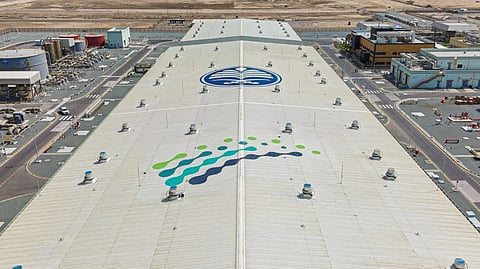

The Kingdom of Saudi Arabia’s water sector is undergoing a transformative strategic shift in its production systems, marked by the gradual transition from energy-intensive thermal desalination technologies to advanced reverse osmosis (RO) systems.
This move supports the Kingdom’s broader environmental goals, significantly reducing carbon emissions while increasing operational efficiency and reliability.
This transformation goes beyond merely adopting new technologies, it forms a foundational pillar of the sector’s long-term vision.
By enhancing water supply reliability, optimizing operational performance, and lowering both environmental and financial costs, the shift aligns closely with the objectives of Vision 2030, reinforcing the Kingdom’s commitment to sustainability.
This trend is exemplified through a series of landmark projects that illustrate the adoption of sustainable technologies and a reduced dependency on fossil fuels in desalination plants.
These efforts have yielded substantial environmental and financial benefits. Key achievements in emission reductions across various desalination projects include Shuaibah phase II with 4.0 million tons annually, Yanbu phase III with 4.5 million tons annually, Shuqaiq phase I with 1.2 million tons annually, Shuaiba phase I with 2.3 million tons annually, Jubail phase I with 2.0 million tons annually, Jubail phase II with 8.5 million tons annually, and Al-Khobar phase II with 4.2 million tons annually.
Among these projects, the Shuaibah 3 plant conversion from flash evaporation to reverse osmosis technology stands out as a major milestone.
With a production capacity of 600,000 cubic meters of desalinated water per day, the project serves Makkah and the holy sites, meeting the growing water demand in the region with greater efficiency and reliability.
This transformation has delivered remarkable outcomes: fuel savings of up to 60,000 barrels of oil equivalent per day and an annual carbon emissions reduction of 9.7 million tons.
The water sector in the Kingdom keeps accelerating the pace of its technological transformation, building strategic partnerships and leveraging cutting-edge innovations to drive future growth.
